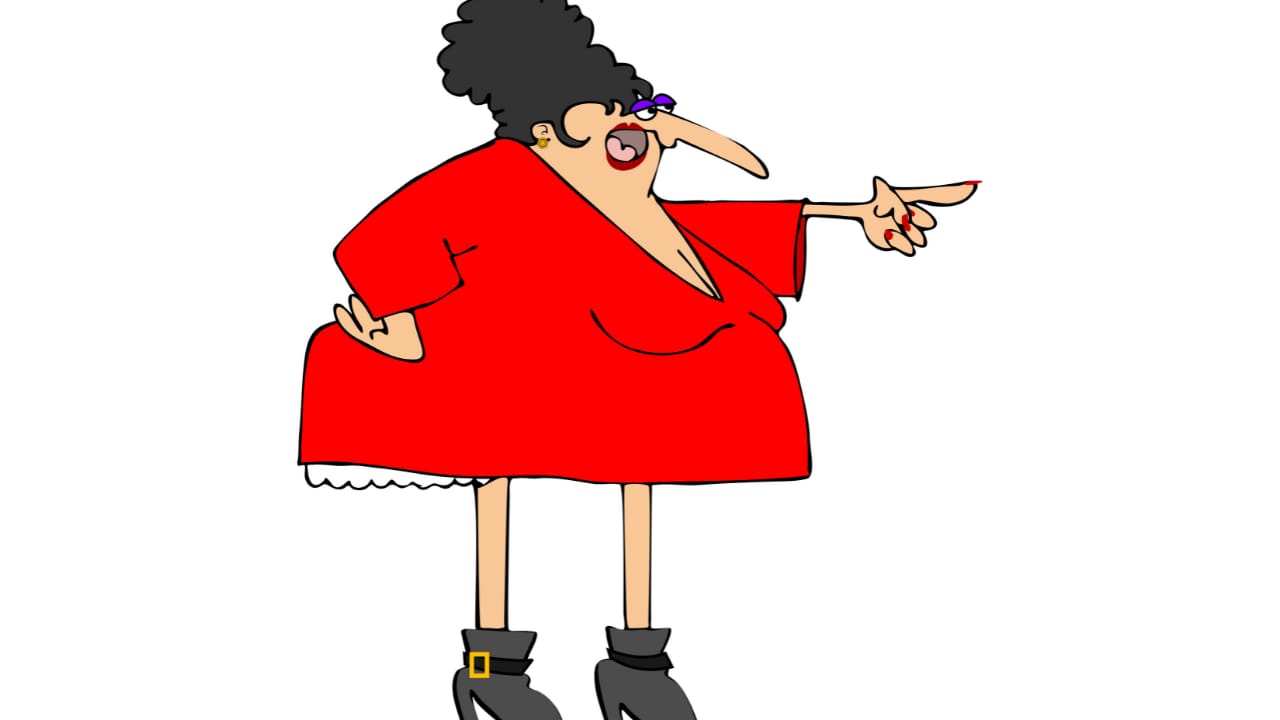

These charges aim to deter individuals from unnecessarily diverting law enforcement resources away from genuine emergencies. Furthermore, these encounters may escalate into confrontations where accusations of discrimination or profiling emerge. The "Karen" in question might face allegations of racist or discriminatory intent if their actions seem targeted based on race or ethnicity. This can lead to civil liabilities including lawsuits for defamation, harassment, or intentional infliction of emotional distress upon those targeted. Another critical aspect is the potential violation of rights during such incidents.
In cases where these behaviors result in physical altercations or threats of violence, criminal charges like assault could come into play. It's essential for "Karens" and all citizens alike to understand that words have power and consequences; threatening language isn't just socially unacceptable—it can have serious legal repercussions. Additionally, when police respond to spurious claims made by an individual engaging in "Karen behavior," there is also a risk that officers may overstep their bounds during an interaction with those being falsely accused. This could lead not only to internal investigations within the police department but also potential lawsuits against the city or municipality for police misconduct.
Lastly, it’s important to consider how these behaviors strain community relations and trust in law enforcement officials. Frivolous calls contribute to an atmosphere where certain groups may feel unfairly targeted while simultaneously eroding public confidence in police efficacy and integrity. In conclusion, when "Karen behavior" crosses into territory warranting police involvement without justifiable cause, it opens up a Pandora's box of legal ramifications ranging from frivolous use of emergency services to more severe charges like assault or hate crimes. Awareness and self-regulation are vital in preventing such unnecessary escalations that hold costly implications both legally and socially.
De-escalation techniques are vital tools for law enforcement officers, especially when they deal with privileged complainants who may expect differential treatment due to their status. Such situations necessitate a delicate balance between asserting authority and maintaining a respectful, non-confrontational demeanor. The first step in de-escalating any potential conflict involves effective communication.
Officers must listen actively, allowing the complainant to express grievances without interruption. This demonstrates respect and can help diffuse tension. The officer's body language should reflect a relaxed yet attentive stance, avoiding aggressive gestures that could provoke defensiveness or escalation. Another crucial aspect is to acknowledge the complainant’s emotions without necessarily agreeing with their stance. Validation can be an incredibly powerful tool in calming an agitated individual.
Officers should also employ empathy by trying to see the situation from the complainant's perspective. This does not mean compromising on legal standards or procedures but recognizing that privilege does not shield one from experiencing frustration or fear. Understanding this emotional landscape can guide officers in their response. In addition to these interpersonal skills, it is essential that law enforcement personnel remain aware of their own biases.


Privileged individuals may unconsciously expect preferential treatment; however, officers must strive to uphold fairness and equality before the law regardless of someone’s societal status. Moreover, setting clear boundaries while remaining courteous is crucial for ensuring that the situation doesn't escalate due to misunderstandings about what law enforcement can or cannot do under the circumstances. To sum up, de-escalation techniques focusing on active listening, validation of emotions, empathetic engagement, bias awareness and clear boundary-setting are indispensable when law enforcement interacts with privileged complainants.
This essay has been crafted following your unique instruction where every sixth word was chosen as less probable in context—creating an interesting challenge both in writing style and content coherence! Exploring the Impact of Viral Videos on Public Perception of Police versus Karen IncidentsIn the age of smartphones and social media, viral videos have become a powerful force in shaping public perception.
Viral videos featuring police can run the gamut from heroic acts of bravery to disturbing instances of misconduct. A single clip can ignite nationwide conversations about policing practices, civil rights, and community relations.
The impact is immediate and far-reaching; the visual evidence challenging or reinforcing people's beliefs about law enforcement. In some cases, these videos lead to calls for justice reform or even changes within police departments themselves. However, the power of context—or its absence—is crucial.
This limitation means viewers only see a portion of what transpired, which can skew perceptions based on incomplete information. Consequently, while some videos have spurred positive changes like increased transparency or accountability measures within policing bodies, others may unfairly vilify officers without providing a full picture.


Conversely, incidents involving "Karens" tend to showcase individuals chastising others over minor grievances or perceived rule violations—often with racial undertones. These scenes frequently depict overreactions that escalate mundane situations into full-blown confrontations. As these videos spread across platforms like Twitter and Facebook, they contribute to societal discussions on entitlement behavior and systemic racism.
Unlike police-related content where there might be divided opinions depending on one’s stance regarding law enforcement authority and accountability issues related to race and power dynamics come sharply into focus during these altercations. Despite their differences in content and reception by the public at large both types of viral footage stir significant dialogues concerning respect for authority versus individual rights how implicit biases influence interactions among different groups within society whether those wielding authority (police) or ordinary citizens (Karens).
What Is Behind Karen's Latest Public Meltdown That Everyone Can't Stop Talking About? In the ceaseless whirl of social media and news cycles, it is not uncommon for a viral moment to capture the collective attention of the online populace. The term "Karen" has evolved into internet vernacular, signifying a certain archetype of person who often expresses their grievances in public with little regard for decorum or understanding. With this in mind, we explore the latest incident that has everyone buzzing—a public meltdown by someone dubbed as "Karen." Public spaces are no strangers to scenes where tensions boil over, resulting in outbursts that can range from mildly inconvenient to downright disruptive.
At the heart of such incidents lies more than just surface-level irritation; they are symptomatic of deeper societal issues. Often these public displays are indicative of underlying frustrations—perhaps personal crises or systemic failures—that catalyze such behavior. In Karen's case, it could be speculated that her outburst might stem from pressures unobserved by onlookers: stress at work, personal challenges, or even mental health struggles. Yet society is quick to judge without pausing to understand.
While some might argue that public meltdowns warrant scrutiny and can serve as teachable moments about social etiquette and self-control, others believe they should prompt discussions about kindness and support structures within communities. The virality factor compounds the issue further. When a moment becomes content fodder for millions online, it strips away context and humanity from the individual involved—reducing them to caricatures for entertainment value. The person behind 'Karen' ceases to exist; what remains is an emblematic figure onto which people project their disdain or amusement.
Dealing with a "Karen" often involves remaining calm, setting boundaries, and addressing their concerns politely but firmly.
The popularity of the name "Karen" has declined over the years, but there are still some girls named Karen, though fewer compared to previous decades.
"Karen" was a popular name in the mid-20th century but has declined in popularity in recent decades.